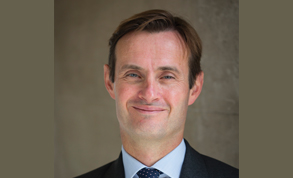Covid costs rise to almost £10bn
At the NHS England and NHS Improvement joint board meeting yesterday, Mr Kelly (pictured) said the year-to-date position for 2020/21 showed clinical commissioning groups had a small underspend (£66m or 0.1% of plan). There was also a small underspend against plan in central admin and running costs (almost £70m), due to vacancies, deferral of some programmes, and costs being met from another budgets as part of the interim finance regime.
However, the adverse financial impact of the coronavirus on the provider sector was more than £5bn. This included loss of income (£1.77bn), additional pay costs (£1.65bn), and other Covid costs (£1.73bn). Mr Kelly added this was offset by underspends in other areas totalling £1bn.
In the year-to-date, providers received block top-up payments of almost £2.5bn and retrospective top-ups/ Covid-19 reimbursement funding of almost £3.37bn.
The net costs of Covid to the NHS stood at £9.7bn at month 8 – around £2bn more than at month 6 – and in line with recent reports that extra costs due to Covid were running at around £1bn a month. This figure does not include most of the additional costs of personal protective equipment and the NHS Test and Trace programme, which are funded directly by the Department of Health and Social Care. The full-year forecast is for a funding requirement of £19bn over and above the original mandate.
Mr Kelly said the paper showed that, up to the end of November, the NHS was spending more than it would have received under the long-term plan mandate.
‘That is basically consistent with the trend we have seen through this year, as we have dealt with the impact of Covid, the extra capacity we’ve had to buy, financial arrangements for the discharge scheme, as well as the loss of income to the NHS that’s happened as a result of Covid,’ he told the meeting.
‘Expenditure is slightly higher – that’s because we have clearly done a lot more activity as we have gone through September, October and November, while non-NHS income has recovered a bit over those three months.’
Providers had spent £2.8bn on capital schemes, including Covid capital, and forecasts suggested spending would be in line with plan at year-end. Commissioners had spent just over £94m in capital at month 8, which was £42m ahead of plan. This was due entirely to phasing of work, the report said, and year-end expenditure is forecast to be in line with the planned £305m.
Mr Kelly expected the ‘normal hockey stick’ curve on capital spending, particularly as the NHS invests to tackle some of the issues around Covid and complete planned work on, for example, mental health dormitory wards, A&E and oxygen supply.
Looking forward, David Roberts, NHS England vice chair told the meeting that the NHS must continue to focus on finance.
‘We need to be – and we are – turning our minds to financial planning, recognising the sensible decision to suspend operational planning for the first quarter to allow people to concentrate,’ Mr Roberts said. ‘We will start thinking again about the financial framework in the new financial year.
‘It will be important to join up operational planning, quality, people, and finances. Clearly those conversations will be important with the Treasury going forward. But so far, so good in terms of being able to get the money into the places where it’s needed.’
Related content
We are excited to bring you a fun packed Eastern Branch Conference in 2025 over three days.
This event is for those that will benefit from an overview of costing in the NHS or those new to costing and will cover why we cost and the processes.